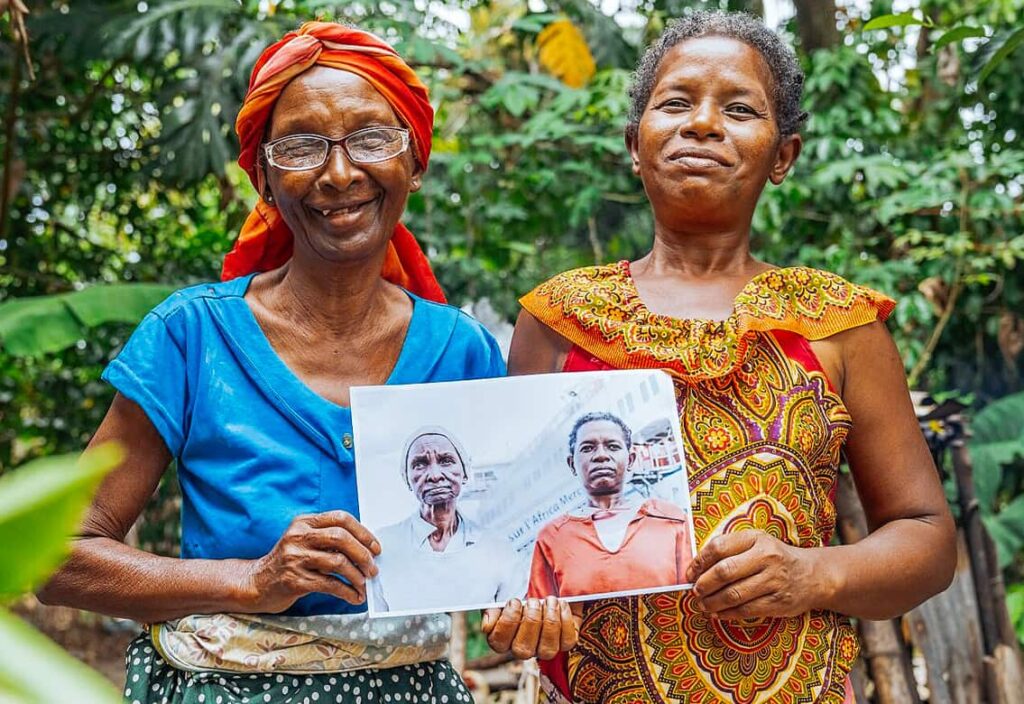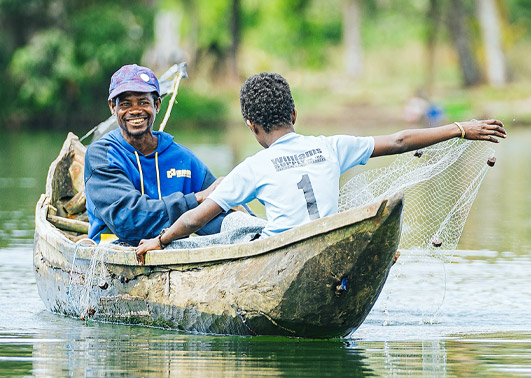Maxillofacial surgery
for Kadidja
Story of Kadidja
At first glance, Kadidja is just like any other child. The 4-year-old girl is happy and energetic. She loves to dance, play, and eat good food. She brightens up any room with her fearless energy and hardly ever stops giggling. But something was holding her back.
When Kadidja’s mother, Ramata, gave birth to her daughter, the doctor who assisted the delivery noticed that the baby had come into the world with a cleft lip. Knowing that there was nothing he could do for the little girl, the doctor told Ramata about Mercy Ships.
Despite being uncertain what she would find, Ramata took a leap of faith by traveling with her baby – then just a year old – to the Africa Mercy. But due to the COVID-19 pandemic, Mercy Ships had already left when Kadidja and her mother arrived in Dakar. They returned to their community, where Kadidja endured the stigma and shame of looking differently than the other children. This was not only painful for Kadidja, but her mother as well: “Since she was born, I refused to take her into the village, because the other children would look at her and try to touch her nose and lips.”
Even at 4 years old, Kadidja began to feel the effects of being treated differently. “She was ashamed to go out because she saw that she was not like the other children,” said her cousin, Maimouna.
Renewed Hope
After two long years of waiting, hope was finally on the horizon once again. Ramata heard that Mercy Ships would return to Senegal, so the mother and daughter journeyed to Dakar. Once they arrived, Ramata heard the words she’d longed for: Kadidja was cleared for surgery.
She was overwhelmed by the love her daughter received from Mercy Ships’ volunteers. “Since I left my village and came to the ship, it felt like I have been in my own home. The volunteers working on the ship and in the HOPE Center are doing a great job. They welcomed me and my daughter with great respect. I was so happy to be there because everyone loved my daughter.”
Soon, this affection allowed Kadidja’s personality to flourish. Her walk onto the gangway of the Africa Mercy became a dance party. She began giving high-fives to every nurse in the ward and said hello to all the other patients as she prepared for surgery. Another trait that began to shine through was Kadidja’s strong will. Before her surgery, ward nurse Melissa noticed Kadidja wanting to pick her own gown to wear for surgery, as she wasn’t fond of the one she’d been given. Ramata watched on with amusement: “I was a bit worried before the surgery, I was just concerned for my daughter. But she is so happy to be here, and I am so happy now that she will be healed.”
A week after Kadidja’s successful surgery, she saw her new smile in the mirror for the first time. In that moment, Ramata was overflowing with love and delight.
“I am so happy. She looks so beautiful. When we go back to our village, everyone will treat her like a normal person. She can interact with other children again and she can go to school.”
When Kadidja’s recovery process came to an end and she was ready to go home, Ramata looked forward to seeing her family again – yet she was sad to leave the community they had formed. “The people on board cared for both my daughter and me. I felt so lucky and joyful to be here and I did not want to leave.”
However, they knew they had so much to look forward to – like the new friendships Kadidja will form. “Now she will have the courage to play with other children,” said Ramata.
Kadidja returned home with a new smile, but more importantly, with the freedom to finally be herself.
Discover more patient stories

Story of Marie Jeanne and Germaine
Discover the story of Marie Jeanne and her daughter Germaine, who were both affected by cataracts and regained their sight on board the Africa Mercy.

Story of Tera
Teras childhood was shaped by a tragic household accident. Thanks to surgery on board, Tera has regained not only his mobility but also his place in the community.

Story of Harimalala
At the age of 12, Harimalala’s life changes suddenly. What seemed like a simple sore throat turns out to be far more serious: a goiter begins to grow on her neck.
An operation on board the Africa Mercy frees her from this mass.

